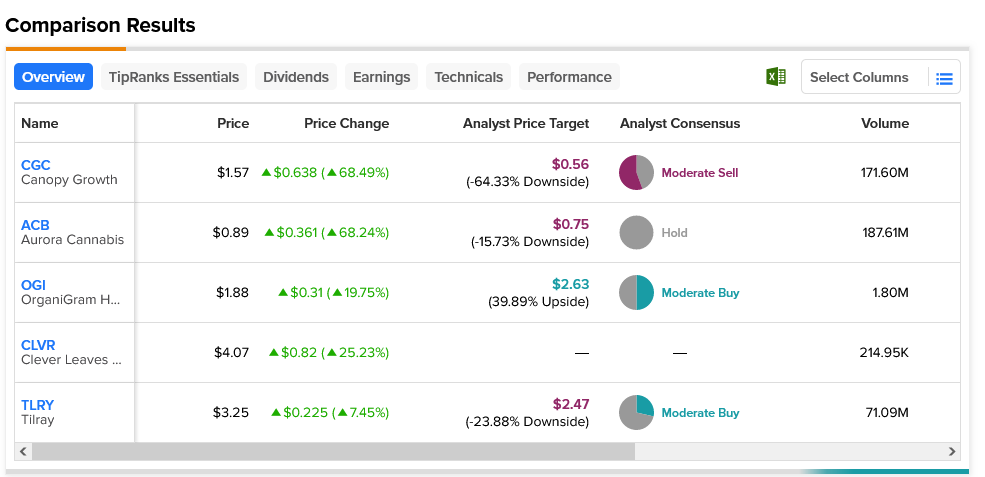The exact role the government should play in the regulation of cannabis—and by extension, cannabis stocks—has been a contentious topic for decades now. And generally, the government itself landed on the tightest possible regulation side and acted accordingly. Now, however, the tables seem to be turning, and that’s sending cannabis stocks on an upward slope to varying degrees in Monday afternoon’s trading session.
Elevate Your Investing Strategy:
- Take advantage of TipRanks Premium at 50% off! Unlock powerful investing tools, advanced data, and expert analyst insights to help you invest with confidence.
Already, the notion of heavy-handed regulation of marijuana seemed to be heading out the door, thanks to a report from the U.S. Department of Health and Human Services that recommended the U.S. Drug Enforcement Administration fundamentally alter its stance on marijuana. The new stance, suggested by HHS, called for the DEA to step down its rating on cannabis in general and make it more accessible to regular users. Follow that up with new calls for “progress on cannabis” from Senate Majority Leader Chuck Schumer, and that only helps matters. Cannabis stocks exploded accordingly, including Canopy Growth (NASDAQ:CGC), Aurora Cannabis (NASDAQ:ACB), OrganiGram Holdings (NASDAQ:OGI), Clever Leaves (NASDAQ:CLVR), and Tilray (NASDAQ:TLRY).
Will this trend continue? There are some definite signs that it will, especially given Schumer’s remarks that call for “progress” even as they cite progress already made. If the SAFE Banking Act goes through, this will allow cannabis operations access to more financial tools, improving their own safety—a lot less cash needing to go through the system—and convenience as well. That’s a pretty big win for an operation that used to have to be largely conducted in back alleys.

Surges were pronounced but hardly universal. For instance, Tilray, a Moderate Buy, only gained just over 7% today. Meanwhile, Canopy Growth posted the highest gains at over 68%. Interestingly, though, it comes with 64.33% downside risk thanks to its average price target of $0.56 per share.
















